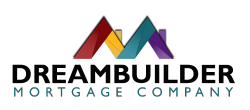Navigating Closing Costs:
A Buyer's Guide
Closing on a home can be an exciting and rewarding experience, but it's essential to be prepared for the financial obligations that come with it. One aspect that often catches buyers off guard is closing costs. These expenses, incurred at the final stage of the home purchase process, can add up quickly and may vary depending on factors such as the type of loan, location, and specific lender requirements.
You might be able to save on your closing costs by negotiating with your lender. You may also want to ask your seller to pay a percentage of your closing costs or take a no-closing-cost loan.
Understanding Closing Costs
Closing costs encompass a range of fees associated with finalizing a mortgage loan. While the down payment is a significant upfront expense, closing costs are separate and cover various services and administrative tasks necessary to complete the transaction. Some common components of closing costs include:
- Appraisal Fees: Charged for assessing the property's value.
- Attorney Fees: In some states, legal representation is required for closing.
- Title Search and Insurance: Ensures the property's title is clear of any liens or claims.
- Escrow Fees: Handling of funds and documents by a neutral third party.
- Credit Reporting Fees: Obtaining the buyer's credit report.
- Origination Fees: Covering the lender's administrative costs.
- Prepaid Expenses: Such as property taxes and homeowners insurance.
- Miscellaneous Fees: Including courier, recording, and survey fees.
Estimating Costs
Closing costs typically range from 3% to 6% of the loan amount. For example, on a $200,000 mortgage, closing costs could total between $6,000 and $12,000. However, the actual amount can vary based on factors like the property's location, loan type, and lender-specific requirements.
Negotiating and Mitigating Costs
Buyers can explore various strategies to manage and potentially reduce closing costs:
- Seller Concessions: Negotiating with the seller to cover a portion of the closing costs.
- Loan Options: Exploring programs that offer lower closing costs or incentives.
- Rate Lock: Securing a favorable interest rate early in the process to avoid rate-related fees later.
- Shopping Around: Comparing quotes from different lenders to find the most competitive rates and fees.
- Understanding Loan Details: Reviewing the Loan Estimate provided by the lender to identify and question any excessive or unnecessary charges.
State and Loan-Specific Considerations
Closing costs can vary significantly depending on state regulations and the type of loan being used. For example, FHA and VA loans have specific guidelines regarding allowable fees and seller contributions. It's crucial for buyers to understand these nuances and consult with their lender or real estate agent for guidance.
Planning Ahead
To avoid last-minute surprises, buyers should factor closing costs into their budget and work closely with their lender to understand the anticipated expenses. By being proactive and well-informed, buyers can navigate the closing process more confidently and ensure a smoother transition to homeownership.
Final Thoughts
Closing costs are an unavoidable aspect of purchasing a home, but with careful planning and negotiation, buyers can manage these expenses effectively. By understanding the components of closing costs, exploring potential savings opportunities, and seeking guidance from professionals, buyers can streamline the process and focus on enjoying their new home.
Whether you're a first-time buyer or a seasoned homeowner, being prepared and informed about closing costs is essential for a successful and financially sound home purchase journey.
